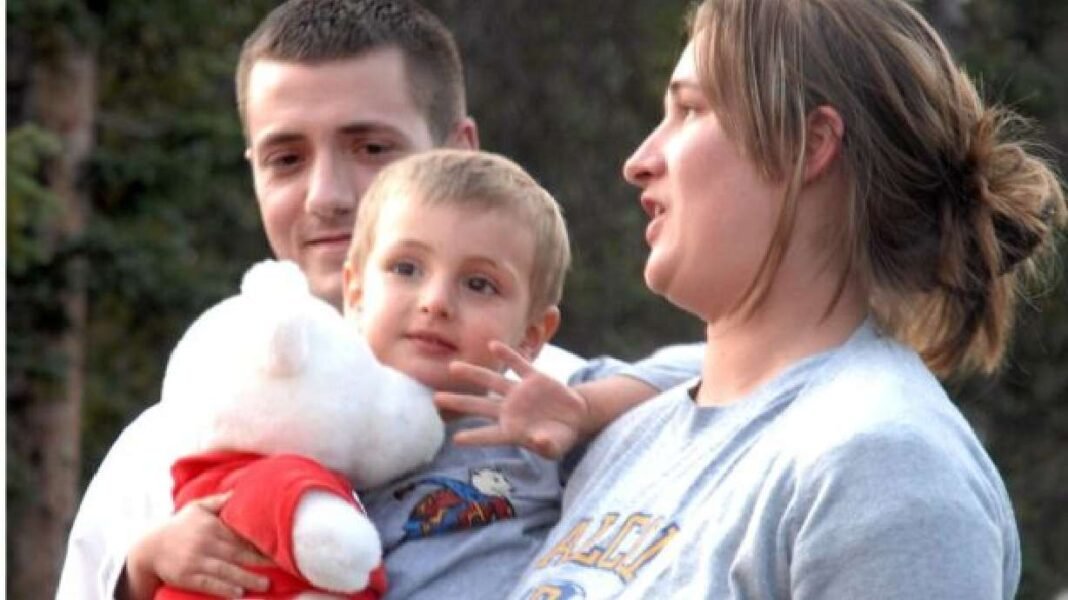
KAMAS — When a person goes missing in the mountains, minutes matter. The difference between locating a missing person alive, or potentially not finding them at all, often depends on how quickly searchers saturate the area.
KSL’s Uinta Triangle podcast follows the 2011 search for an Australian trekker named Eric Robinson who failed to arrive at the end of the Uinta Highline Trail. Robinson was hiking solo and planned to be out of contact while on the trail for 10 days. When he didn’t make his rendezvous with a friend at the end of the trail, the friend notified search and rescue.
Searchers were disadvantaged, though, by the long lapse of time between when Robinson started his hike on the roughly 65-mile trail and when his friend reported him missing. Robinson was an experienced trekker who was well-prepared, but the odds of his surviving a mishap for more than a few days were low.
Benjamin Myrup disappears in the Uinta Mountains
An upcoming bonus episode of the Uinta Triangle podcast also examines another story of a missing person in the Uinta Mountains.
In September of 2007, a 3-year-old boy named Benjamin Myrup disappeared from the area of Haystack Lake, just west of the Mirror Lake Highway.
Myrup’s mother, Naomi Jacobs, recounted the experience in an interview with KSL in 2019. Jacobs said she and a friend visited Haystack Lake with their children.
“We went up, just two moms camping,” Jacobs said.
They stayed in an undeveloped site along a dirt road, south of the popular Washington Lake Campground. On the morning of Sept. 11, Jacobs was preparing breakfast while her friend entertained the children.
“She had them all playing a bear hunt game,” Jacobs said. “Benjamin decided he didn’t like that game, so he turned around to go back to camp and turned around the wrong way.”
Jacobs and her friend realized Benjamin was missing when he didn’t come to get breakfast. They called out for him but heard no response. Because there is no cellphone service in the vicinity of Haystack Lake, Jacobs had to drive 25 miles down the highway to notify the Summit County Sheriff’s Office.
“It was really hard to make that call and be like, ‘I lost my kid. I don’t know where he is,'” Jacobs said.
Mathew Myrup learns his son is missing
Jacobs also called her husband, Mathew Myrup, who was at work at a hotel in Salt Lake City.
“I just told my co-worker, ‘Hey, I’ve got to go. My son’s missing,'” Myrup said. “Co-worker, I don’t think she understood the extent of what was going on because she kept saying, ‘Oh, he’s going to be OK. Don’t worry.’ And it’s like, he’s one of those kids that’s missing now in the mountains. It may not be OK.”
Myrup was aware that a few years earlier, in 2004, a 12-year-old boy named Garrett Bardsley disappeared in the Cuberant Basin area of the Uinta Mountains. Bardsley was never found, despite a large-scale search effort.
A year later, an 11-year-old named Brennan Hawkins survived four days lost in the East Fork Bear River area of the Uintas. Garrett Bardsley’s father, Kevin Bardsley, had played a key role in organizing volunteer efforts in the search for Hawkins.
“That was always fresh on my mind, so I knew who Kevin Bardsley was and his foundation,” Myrup said.
The Summit County Sheriff’s Office also summoned the Garrett Bardsley Foundation to assist with the search for Benjamin Myrup.
Mathew Myrup recalled leaving work to drive up to Haystack Lake. While approaching Kamas, he saw the Utah Department of Public Safety helicopter pass overhead.
“That’s kind of when it was more reality to me. Like, ‘Oh my gosh. This is real. It’s not a dream,'” Myrup said.
A family crisis
Mathew Myrup and Naomi Jacobs met up at Haystack Lake and stood by as a growing number of search-and-rescue team members, as well as volunteers, poured into the area.
It was not public knowledge at the time, but Myrup and Jacobs were separated and just a week away from finalizing their divorce. They set aside their personal situation to focus on the task of finding Benjamin.
“We weren’t good married to each other, but we’ve always focused on loving our kids and being the best parents we can to our kids,” Jacobs said. “It could’ve been horrible and (Mathew) could’ve blown up and said, ‘You’re not a fit mother.’ When, it just could happen to anybody.”
Jacobs said she learned later that searchers feared her young son might’ve gone into the cold waters of Haystack Lake and drowned, or fallen into the Provo River or had an encounter with a wild animal.
“I’m sure there was stuff that they were keeping back,” Myrup said. “They didn’t want to tell us, I would imagine, just to not make us worry even more.”
As the day wore on, the weather in the Uintas started to shift. Early on, blue skies graced the search area, but as afternoon faded into early evening, gray clouds rolled in. Forecasts called for sub-freezing temperatures in the mountains overnight.
Benjamin Myrup’s parents realized they would likely need to leave the mountains for the night and return the next morning to continue the search.
“As we were about to leave to go find accommodations, lodging somewhere, I thought: I could wake up tomorrow — I really don’t know if Benjamin will still be alive,” Myrup said. “At that point is when I kind of accepted that things could go for the worse.”
Benjamin Myrup’s lucky find
At that same moment, a member of the Summit County Sheriff’s Office was making a last pass over the search area in the Utah DPS helicopter. Gary Hannay sat in the back of the helicopter, with the sliding door open, as it banked over a spot thickly forested near the Provo River.
The pilot spotted a flash of what appeared to be blonde hair catching sunlight deep in the shadows between the trees.
“So, we circled around again, and then I said, “Oh yeah. There he is. That’s definitely him,'” Hannay said. “He was almost, I bet he was 15 yards from the Provo River.”
The helicopter circled over the location as searchers on the ground rushed to Benjamin’s side. They discovered he’d somehow lost a shoe. The shoe was never located.
Benjamin had traveled nearly a mile, as the crow flies, from the point he’d last been seen and slid down a steep embankment that searchers originally believed he couldn’t have descended.
Naomi Jacobs spoke to the news media that evening with tears in her eyes and Benjamin in her arms.
“They found my baby and he’s fine,” Jacobs said in 2011. “I am just grateful, and we are grateful that we have our baby back and he is safe.”
Benjamin Myrup remembers getting lost
Benjamin Myrup is today a young man, 21 years old, who fills his time serving a service mission for The Church of Jesus Christ of Latter-day Saints. He spoke with KSL in 2019, when he was 15, about what he remembered of the experience.
“I remember the bear hunt game,” Benjamin Myrup said. “We turned left at one point, and so when I turned around I turned left again. But, I should’ve turned right.”
Myrup recalled seeing a log that looked familiar and heading toward it, not realizing his steps were taking him farther away from camp. At just 3 years old, he didn’t know to stop and wait for rescue.
“I also remember sliding down a steep thing,” Myrup said. “I was very confused. I lost my shoe, I remember that. I tried to use it as a pillow.”
Myrup said he didn’t grow up with a fear of the forest after his close call in the Uintas.
“The woods are so cool,” Myrup said. “But I got lost. I feel like I should be scared of the woods, but I’m just like, they’re awesome.”
Lessons learned from Benjamin Myrup’s experience
Naomi Jacobs remarried a while after her divorce from Mathew Myrup. Jacobs and her second husband had several more children. She said whenever the family travels, she dresses her kids in matching clothing so she can easily keep track of them.
“The wilderness is something that should be respected,” Jacobs said. “Follow the hiking guidelines and make sure that you have the buddy system and make sure that you’re prepared.”
Mathew Myrup said he learned never to bring a child into the mountains without a way to signal for help, whether that’s with a whistle or a GPS locator beacon.
“Benjamin was lost for 8-and-a-half hours. I never would’ve found him on my own,” Jacobs said. “I can never go and find every person who looked for him and thank them and pay them back. So it’s this debt of gratitude that I try to repay, and I know I can’t — and it’s OK, because he’s here.”
The Key Takeaways for this article were generated with the assistance of large language models and reviewed by our editorial team. The article, itself, is solely human-written.




